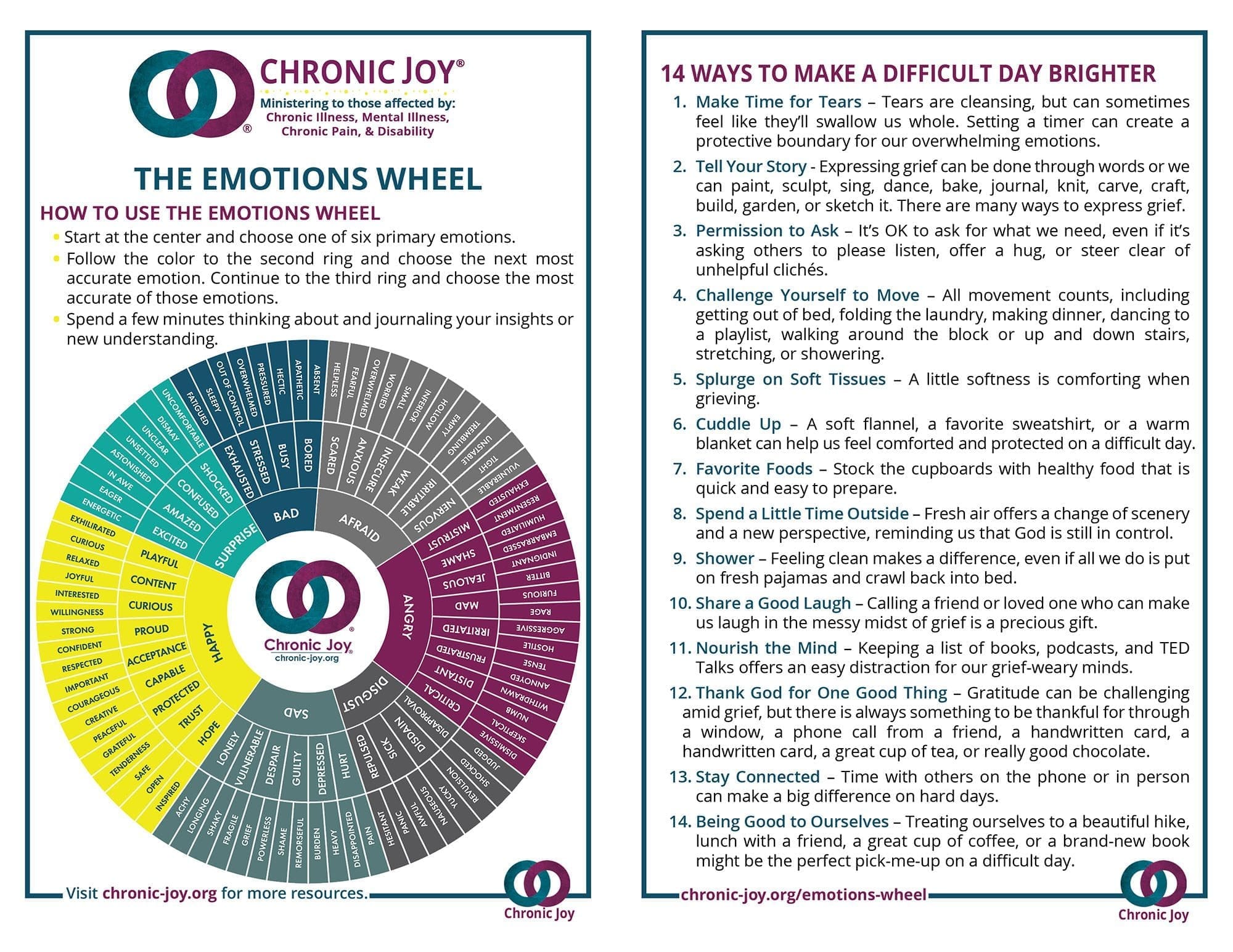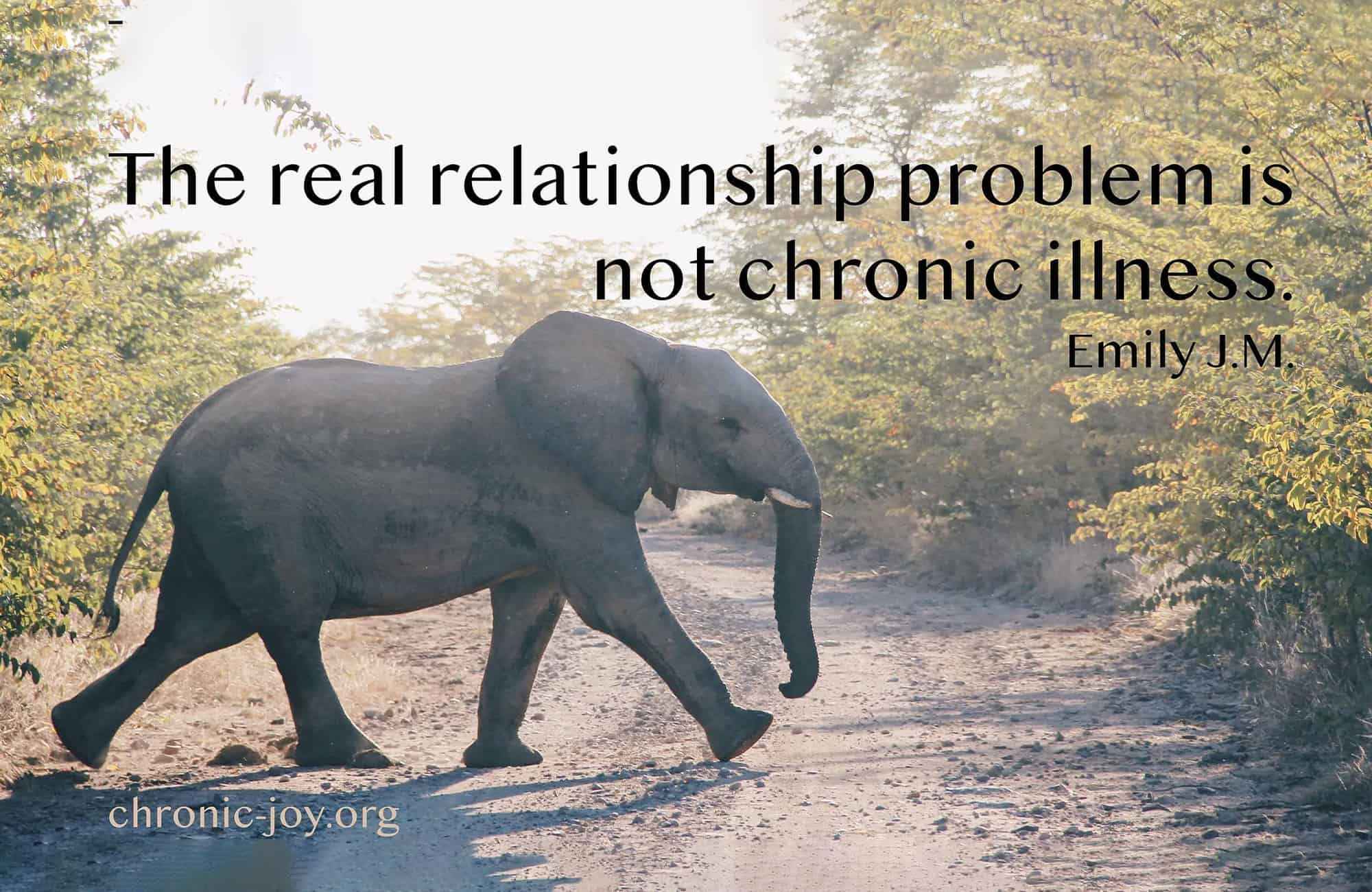(Part 1 is HERE)
CHRONIC ILLNESS RELATIONSHIPS ARE HARD
Relationships with chronically-ill people (whether they are partners, friends, or family members) are often difficult. It’s easy to feel frustrated and begin to resent them. In Part 1, I mentioned that perhaps we need to admit it’s difficult and carry on – but that’s not a tangible answer.
Maybe admitting that we find relationships with chronically-ill people difficult has identified problems in ourselves. Maybe we’ve seen assumptions or expectations we’ve been holding on to which are harmful. Perhaps it has simply confirmed that our chronically-ill friend is the one who is hurting us, whether intentionally or otherwise. Either way, we have not yet solved the problem.
The relationship has been affected and we feel frustrated and resentful. So what do we do?
ACCEPTING BROKENNESS IN RELATIONSHIPS
Sometimes remembering that both you and your chronically-ill loved one are only human can go a long way.
We can’t avoid frustrations and fractured relationships in this world. One day our hearts will be whole and healed, but that time is not yet. It is not wrong to long for better relationships or to feel that something is missing, but we cannot expect or demand perfection in this life.
Sometimes we need to learn to be (temporarily) satisfied with less. The only way we can do this is if our strongest hope is in our relationship with Jesus rather than our relationship with our chronically-ill loved one.
THE REAL RELATIONSHIP PROBLEM IS NOT CHRONIC ILLNESS
We need to acknowledge that we get annoyed with people who aren’t sick, too. Do we feel just as guilty over this?
As we look at our relationships with our chronically-ill family members, we must not forget about our other relationships. After all, the problem is not that we are angry at someone “more vulnerable” than us, it is that we are refusing to love someone God created.
The world tells us that it is infinitely worse to malign the sick than the healthy, more horrible to knock over the little old lady than the twenty-year-old man.
The Bible has higher standards.
CHRONIC ILLNESS IN RELATIONSHIPS PRESENTS A UNIQUE OPPORTUNITY
At every crossroads in life, we have to decide to reflect God or ourselves. When I gaze at what is in my heart, I know which one I want – and this situation is no different.
Chronic illness is never an excuse for our loved ones to behave badly, but it is always an opportunity for us to extend patience.
Relationships are opportunities for us to love like Jesus. So let’s make the most of them!
LET’S BE PRACTICAL
There can be a temptation to treat our frustration with our chronically-ill friend as a “spiritual” problem. I don’t think such a thing exists.
We are flesh-and-blood people. All of our dilemmas have both a spiritual and a physical dimension. So let’s not be ashamed of ourselves if the reason we’re angry is that we are tired. Perhaps there is no deep underlying resentment or other ongoing issues. Maybe we just need to take a break. Maybe we’re overtired. Maybe we’re stressed.
Sometimes “taking a break” is a luxury we do not have (or do not allow ourselves to have!). Yet even then, admitting that our anger is the result of a physical circumstance can go a long way in helping us to love.
GOD ULTIMATELY AFFECTS CHRONICALLY-ILL RELATIONSHIPS
In the end, there is only one thing that is always the solution: we need to pray and ask God for help. If we profess to be Christians, we need to be honest with ourselves. God’s way is not hatred. It’s love.
No exceptions.
We are utterly sinful and cannot love properly by ourselves. In fact, according to God’s definition of love, we cannot love at all. HowEVER, Jesus died for our sin – our hatred, our frustrations, our annoyance (each such act requiring repentance).
I very, very rarely love my chronically-ill family members (let alone anyone else) as I ought, so I find it an immense comfort that God’s love for my loved one is enough. Not only so, but His love for me does not waver as I fail time and time again. That in itself is an encouragement to fight for love.
The more time we spend gazing at God’s love as portrayed in the Bible, the more time we spend with Him, and the more time we take to discuss, question, ponder, and share His love, the more it will transform our lives – and the more we will be able to love.
I have prayed so many times: God I don’t have enough love for this person right now. If you want me to love, you’re going to have to do everything – because I cannot.
Sometimes to love another human seems like an impossible task – and for us it is, but for God, it never is. What a relief!
First published at calledtowatch.com. Published with permission.


Emily J. Maurits
Chronic Joy® Contributing Writer
After working for several years in public health, Emily is studying theology. She believes we are all called to love suffering people because it is what Jesus did. She is passionate about equipping and encouraging others to do just that and founded www.calledtowatch.com for the family and friends of those with chronic illness. As well as uncovering God's presence in the chaos of life, she enjoys reading, running, and writing. Check out her memoir Two Sisters & a Brain Tumour.

Emotions Wheel
God created us with a complex range of emotions which can be difficult to identify and explain. The Emotions Wheel is a tool designed to grow our emotional intelligence, thus strengthening our relationship with God as well as our compassion and empathy for others.


Recent Comments